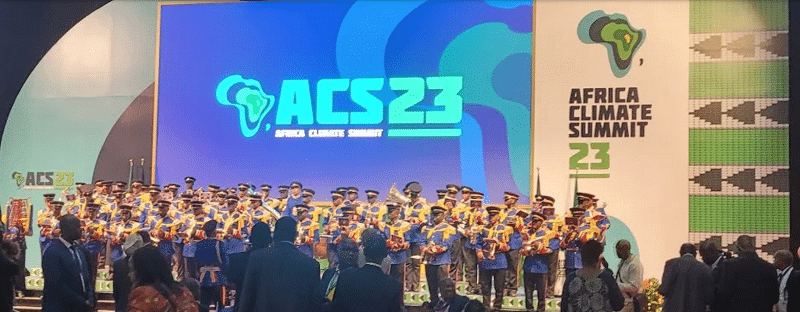3 Ways AI Can Aid African Communities in Adapting to Climate Change
Although it is a worldwide issue, not everyone is affected equally by climate change. Communities in Africa frequently bore the brunt of its effects, including food insecurity and deadly floods. The lack of resources and infrastructure makes these problems worse. A united resolve to combat climate change utilizing cutting-edge Artificial Intelligence (AI) solutions was demonstrated at a recent historic event, the inaugural Africa Climate Summit (ACS), which was hosted in Nairobi, Kenya.
Google joined African officials in underlining the significance of Africa in efforts to adapt to and mitigate the effects of climate change at the ACS. The continent is experiencing unprecedented challenges from the climate on its economies, way of life, and natural environment. No amount of action can be taken soon enough. Google is adamant that AI can be an effective tool for tackling these urgent problems.
Here are three significant ways that AI is being used to help African communities prepare for climate change:
1. An approach based on partnerships
Collaboration is one of the most efficient strategies to deal with climate concerns. To spread the word about AI technologies that provide early warnings for natural catastrophes like floods and wildfires, Google is collaborating closely with national governments, the UN World Meteorological Organization, and non-governmental organizations (NGOs). The “Flood Hub” portal is one such tool, providing predictions for riverine floods in 80 countries, including 23 in Africa.
This is made feasible by Google’s worldwide AI model, which can forecast river behavior even in areas with little historical data. For communities who are at risk, this technology can be a lifeline in terms of assisting with preparation and emergency response. Google is still dedicated to improving these AI capabilities, spreading awareness, and investigating other use cases through partnerships.
2. African Teams Serving and Cooperating with Communities
The Accra, Ghana- and Nairobi, Kenya-based Google Research teams are in the forefront of developing creative solutions to the continent’s distinct societal problems. In light of climate change, food security is becoming increasingly problematic. These teams are looking into several applications for AI, such as forecasting food insecurity, boosting food production, and controlling pests.
70% of Africans depend on agriculture for a portion of their income, making it the continent’s economic backbone. Vulnerable populations are being impacted by changing climate trends, harsh weather occurrences, and economic changes. AI has a critical role to play in assisting farmers in adjusting to these changes while preserving the security of food for expanding populations.
3. Open-Sourced Innovation
Insights derived from data are essential in the fight against climate change. Google is aware of the potential for open data sharing to have a significant, widespread impact. A project run by its Research team in Accra, Google released a new version of their “Open Building” dataset in June. This dataset, which was originally just concerned with mapping buildings on the African continent, has now doubled in size and also covers areas including Latin America, the Caribbean, India, and Pakistan.
With 1.8 billion building detections and coverage of the majority of developing nations, this dataset is a useful tool for numerous international NGOs engaged in humanitarian assistance and the pursuit of the Sustainable Development Goals. For instance, the organization Sunbird AI is collaborating with the Ministry of Energy in the Lamwo district of Uganda utilizing this information to analyze the electrification needs in villages and design strategies to prioritize electricity in key areas.
Google is dedicated to meaningfully supporting climate change adaptation and mitigation efforts in Africa and beyond by actively working with local partners, investing in AI innovation, and promoting open-source initiatives.
[Learn more about Google’s efforts to promote sustainability.](https://sustainability.google/)—
Please examine the article and let me know if you have any additional revisions or specific improvements you’d like to make.






